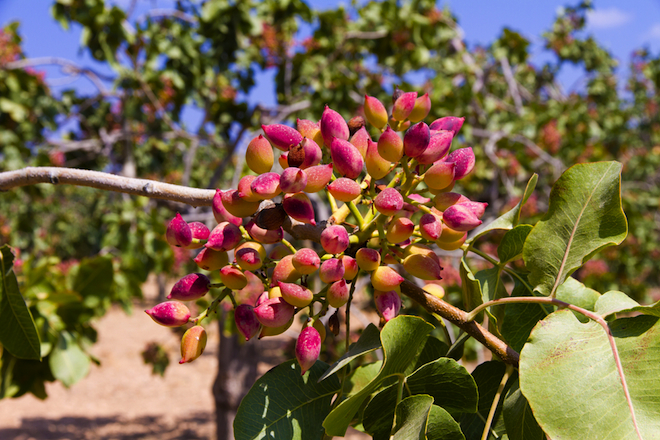Turkey is floating plans to build a new “eco-city” in the southeastern corner of the country, near the border of Syria, and green building experts from Gaziantep want to use energy from burning pistachio shells to keep it running.
The new 3,200 hectare city for roughly 200,000 residents would be located roughly six miles outside of Gaziantep in the province of the same name.
This is a historic city, one of the oldest continuously habited communities in the country, that is world renowned for its pistachio production. In fact the word pistachio means “Antep nut,” which refers to Gaziantep’s original name that is still used informally today.
Although the city also produces olives and other crops, Seda Muftuoglu Gulec from the municipality told AFP that it makes sense to look to the most ubiquitous natural resource as a source of energy, and pistachios are certainly that.
Related: Gorgeous green-roofed Ostim Eco Park is a clean tech incubator for Ankara
“If the region was abundant in wind power,” she said, “we would utilise wind energy.”
In 2013, Turkey exported 6,800 tons of pistachios worth roughly $80 million, and more than half of them were produced in Gaziantep.
A French engineering firm, Burgeap first discovered that burning pistachios can be harvested as clean, renewable energy, and that the local variety is the best suited for the job. The firm estimates that up to 60 percent of the region could be powered by renewables.
While local officials and landowners still have to come to an agreement, a 55 hectare area will be set aside as a test bed for the new city. Once agreements are made, Gulec says that the city can be built rather quickly.
In the last three years, Turkey’s energy demand has skyrocketed – it has the fastest growth in energy demand of all countries that belong to the Organization of Economic Cooperation and Development (OECED), and the government is unable to meet 100 percent of its demand.
Finding alternative energy sources not only reduces this demand, but also slows down greenhouse gas emissions. Last June, Turkey submitted 9GW worth of solar projects within a span of five days – an indicator of its desire to incorporate more renewables into its energy mix.
Image of pistachio tree / Shutterstock




